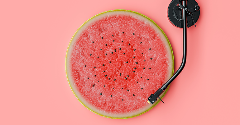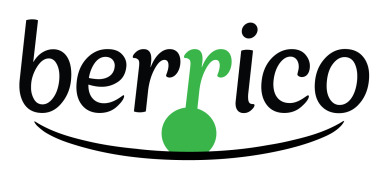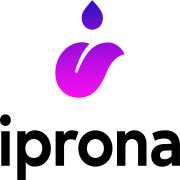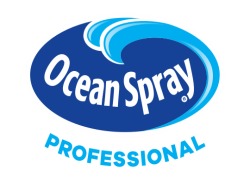News
Cranberries show promise for improved gut health
19 Nov 2018Researchers are just beginning to understand the link between the gut and many chronic health conditions, leading to growing interest in prebiotic ingredients. According to a new study, cranberries are the latest food to show prebiotic potential.

Interest in gut health continues to gain ground, as researchers have started to uncover links between the gut microbiota and disease risk well beyond digestive health, such as atherosclerosis, hypertension, kidney disease and type 2 diabetes. Emerging evidence suggests that even mood and brain structure could be related to the bacterial composition of the gut.
In the food industry, probiotics continue to dominate the market for gut health ingredients, but awareness of prebiotics – the ingredients that feed beneficial bacteria – is growing. According to a Global Industry Analysts’ report, demand for prebiotic-containing products, such as health drinks, infant food, dairy, meat and bakery products could drive the market to reach $7.8 billion by 2022. For comparison, the same organisation predicts the market for probiotics will exceed $63 billion that year.
With strong market potential, the message from researchers is that identifying foods that support better gut health could have a significant impact on overall public health.
In this latest pilot trial, researchers from Tufts University found cranberries may improve gut health in people consuming low fibre diets rich in meat and dairy. Thirty grams of freeze dried whole cranberry powder each day helped reinstate a healthy microbiome.
The study was funded by a US non-profit organisation called The Cranberry Institute, which is dedicated to supporting research to improve market opportunities for cranberry growers. Its members include major players like Fruit d'Or and Ocean Spray Cranberries, but research into cranberries’ health benefits stands to benefit European suppliers of cranberry powders and extracts too, such as Berrico, Iprona and Naturex.
It is just the latest in a host of studies suggesting health benefits from cranberries, and cranberry suppliers already profit from research into the berries’ antioxidant content, their potential for limiting urinary tract infections, and for improving vascular function and cholesterol profiles.
Research backing the benefits of cranberry powder could have a halo effect too, potentially boosting sales of other cranberry products, such as whole dried cranberries used in baked goods, or cranberry juice drinks, for example, as consumers tend to associate the benefits of specific ingredients with related products.
When it comes to gut health, industry still has some work to do to promote prebiotic ingredients. A lack of consumer understanding about the function of prebiotics continues to be a barrier to greater uptake among food and beverage companies. Researchers have suggested that one possible approach could be to combine prebiotic ingredients with probiotics, which already enjoy considerable market acceptance.
Related news

Retail landscape lacks nutritious and affordable food, says ATNi
30 Dec 2025
A rapid increase in modern food retail has given retailers growing influence over consumer diets, according to global non-profit ATNi’s latest assessment.
Read more
Debate over ban on ‘meaty’ names for plant-based products reaches stalemate
26 Dec 2025
The debate over a ban on plant-based products using “meaty” terms has reached a stalemate, leaving manufacturers in limbo and still facing overhauls to their marketing and packaging.
Read more
Multi-sensory food and drink products to gain traction in 2026
16 Dec 2025
Trend forecasters predict that sensory elements will play a larger role, helping food and beverage brands differentiate themselves in a competitive market in 2026.
Read more
Big appetite for M&A between European and US food and drink companies
3 Dec 2025
Persistent tariffs on EU food and beverage exports have helped drive record levels of M&A activity between European and US companies this year, according to analysis by ING.
Read more
Non-UPF Program extends certification scheme to entire food industry
30 Nov 2025
The Non-UPF Program has extended its certification scheme to the wider food sector, championing a move towards healthier consumption habits.
Read more
Lancet study links UPFs to chronic disease risk
26 Nov 2025
UPFs are consistently associated with an increased risk of diet-related chronic diseases, according to a comprehensive review of global evidence in The Lancet .
Read more
Concerns swirl around cinnamon’s compliance with EU law
25 Nov 2025
Cinnamon may be a top functional ingredient, but it needs stronger protocols to ensure it meets EU food safety laws and quality standards, say researchers.
Read more
Oat Barista: Innovation for game-changing beverages
20 Nov 2025
Oat Barista is a clean label, sustainable, and innovative drink base specifically designed to create the perfect foam in one single ingredient.
Read more
How younger consumers are redefining ingredient choices and rejecting brand loyalty
18 Nov 2025
Gen Z and millennial consumers’ preferences for transparency, functionality, and purpose are “redefining the very nature of consumption itself”, says SPINS.
Read more
Hybrid formats and flexible positioning to disrupt category norms in 2026
17 Nov 2025
Trend forecasters expect food and drink to move more fluidly across occasions, functions, and formats as consumers seek versatility, novelty, and convenience.
Read more




